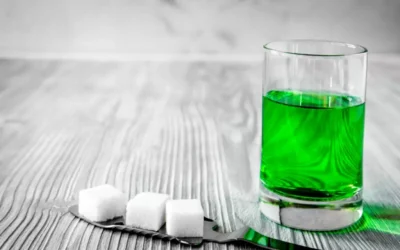More frequent binge drinking, though, is more likely to lead to long-term damage. The 37 million binge drinkers had about one binge per week and consumed an average https://ecosoberhouse.com/article/the-hidden-effects-of-binge-drinkin/ of seven drinks per episode. It can be challenging (but also helpful) to talk openly about your concerns about binge drinking with trusted friends and family.
- Over time, a binge drinker is at a higher risk for severe health problems such as liver disease, pancreatitis, and certain types of cancers.
- No matter how you choose to support your loved one’s efforts to stop binge drinking, remember you’re not their therapist.
- Excessive drinking is also bad for the cardiovascular system, leading to increased risk of heart attack, high blood pressure, and irregular heartbeat.
- People in farming communities are more likely to binge drink (consume alcohol at short-term risky levels) when compared with the general Australian population.
- The U.S. Preventive Services Task Force also recommends screening and counseling for alcohol misuse in primary care settings.
These changes could produce chronic and sustained activation of immune responses that, in turn, could lead to immune exhaustion and dysfunction. However, averages are deceptive, and Ireland is not the booziest country in Europe. It has some stiff competition from Germany, Latvia, and the Czech Republic, among others. As far as long-term effects, binge drinking can also lead to internal damage, especially if you’re regularly engaging in binge drinking episodes. Large amounts of alcohol consumed over a long period of time can negatively impact the parts of your brain that deal with judgment, balance and coordination.
Short-term effects and health risks of binge drinking
What are the effects of alcohol on mental health | Tips & advice for alcohol abuse & dealing with drinking coping mechanisms. When drinking choices are perceived as “just one drink,” with each single drink representing relatively slight risk, it may ironically lead to heavier drinking and alcohol-related harms. That’s the finding of a novel study exploring the decision-making process around binge drinking. If you feel that you sometimes drink too much alcohol, or your drinking is causing problems, or if your family is concerned about your drinking, talk with your health care provider. Other ways to get help include talking with a mental health professional or seeking help from a support group such as Alcoholics Anonymous or a similar type of self-help group. While you can’t control how other adults handle alcohol, if you’re the parent of a teen who binges, you’ll want to take action.
Complete results of the 2015 study can be found in the American Journal of Preventive Medicine. According to Dr. Streem, the bottom line is that Americans need to drink less alcohol. Alcohol is also often found in the blood of people who harm themselves or attempt suicide.
Adolescent Binge Drinking
The perceived risk of one hypothetical drink predicted real-world drinking behavior and the likelihood of AUD. The risk of AUD is especially heightened for those who believe a single drink carries zero risk. Early decisions around drinking may have larger effects on drinking and alcohol outcomes than decisions about later drinks. Moderate https://ecosoberhouse.com/ drinkers and abstainers were more risk-averse than heavy drinkers and more likely to perceive risk in a single drink. Higher perceived risk of heavy drinking was linked to lower likelihood of accepting a fourth, fifth, sixth, seventh, or eighth drink. But neither this nor risk sensitivity were protective against unsafe alcohol use.

Please include what you were doing when this page came up and the Cloudflare Ray ID found at the bottom of this page. Their volatile behavior and emotions might even have an effect on your relationship. Maybe your loved one has a tendency to say insensitive things while intoxicated, or perhaps they routinely drink and drive. Memory loss or fragmented memories of the previous night might leave you feeling uneasy or worried about your health.
Topic Series: Binge Drinking: Predictors, Patterns, and Consequences
However, not all reports support the link between consuming a specific beverage type (i.e., wine vs. beer or spirits) and health benefits. Some reports suggest that beverage amount is more directly linked to health outcomes.11,12 The differential contribution of alcoholic beverages to beneficial or detrimental health outcomes remains to be examined in both preclinical and clinical studies. Therefore, dissecting how pattern of drinking and type of alcoholic beverage contribute to overall outcomes is challenging. Additional research is needed to better recognize the differential effects of binge, chronic, and binge-on-chronic patterns of alcohol consumption.
In fact, abstaining from alcohol between sessions of excessive alcohol consumption is a key characteristic of binge drinking. You may think that because you’re not physically dependent on alcohol and don’t have to drink every day that your drinking isn’t harmful. However, binge drinking can have serious consequences and any unhealthy patterns of alcohol use can lead to more serious problems. How these shifts in bacterial strains, load, and metabolites contribute to organ injury remains to be fully elucidated. However, it is reasonable to speculate that greater bacterial burden and altered bacterial profiles, together with increased permeability of the gut mucosa, would lead to continuous entry of bacterial toxins into the systemic circulation.
